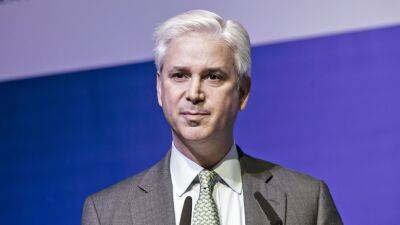‘We were all wrong’: how Germany got hooked on Russian energy
On Sunday 1 February 1970, senior politicians and gas executives from Russia and Germany gathered at the upmarket Hotel Kaiserhof in Essen. They were there to celebrate the signing of a contract for the first major Russia-Germany gas pipeline, which was to run from Siberia to the West German border at Marktredwitz in Bavaria. The contract was the result of nine months of intense bargaining over the price of the gas, the cost of 1.2m tonnes of German pipes to be sold to Russia, and the credit terms offered to Moscow by a consortium of 17 German banks. Aware of the risk of Russia defaulting, the German banks’ chief financial negotiator, FriedrichWilhelm Christians, took the precaution of asking for a loan from the federal government, explaining: “I don’t do any somersaults without a net, especially not on a trapeze.”
The relationship would benefit both sides: Germany would supply the machines and high-quality industrial goods; Russia would provide the raw material to fuel German industry. High-pressure pipelines and their supporting infrastructure hold the potential to bind countries together, since they require trust, cooperation and mutual dependence. But this was not just a commercial deal, as the presence at the hotel of the German economic minister Karl Schiller showed. For the advocates of Ostpolitik – the new “eastern policy” of rapprochement towards the Soviet Union and its allies including East Germany, launched the previous year under chancellor Willy Brandt – this was a moment of supreme political consequence. Schiller, an economist by training, was to describe it as part of an effort at “political and human normalisation with our Eastern neighbours”.
The sentiment was laudable, but for some observers it was a
Read more on theguardian.com

 theguardian.com
theguardian.com




















